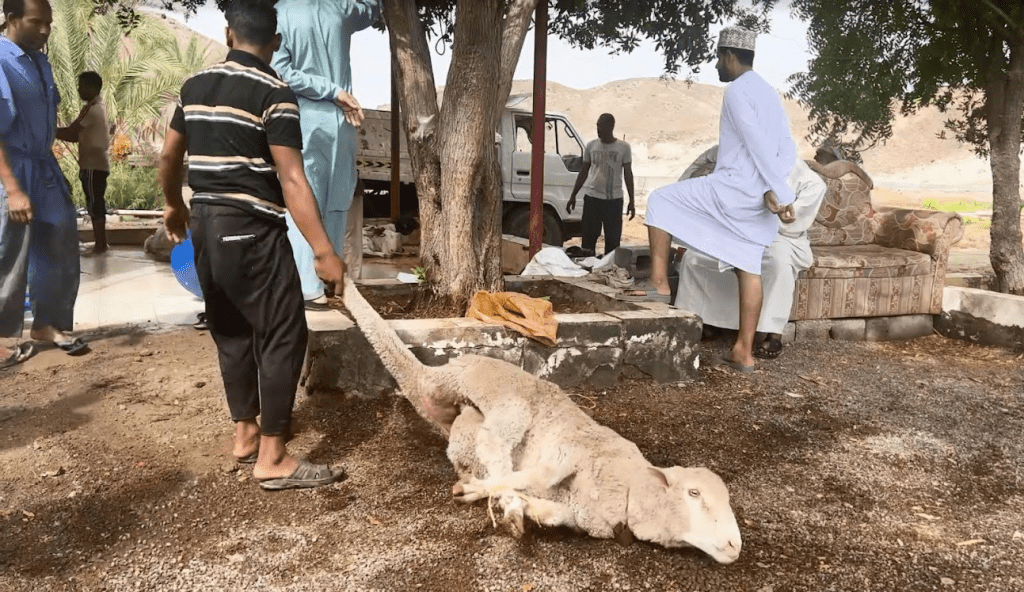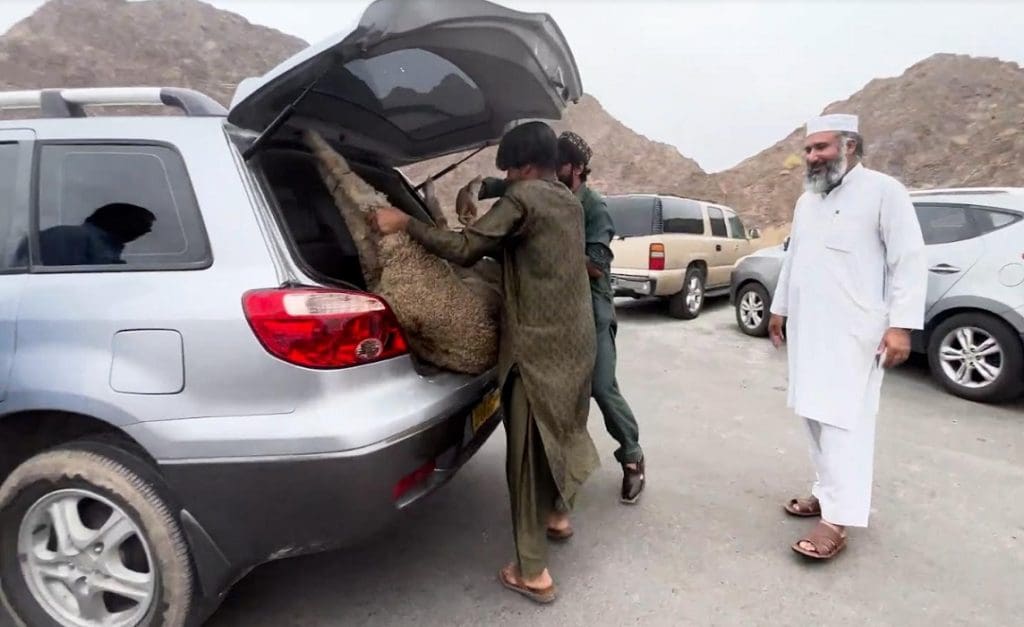
Animals Australia has released images of Australian sheep being slaughtered outside ESCAS in Oman.
ANIMALS Australia has rejected suggestions it has attempted to undermine Australia’s Export Supply Assurance System for the live sheep trade in the Middle East.
The charity’s director of strategy Lyn White has expanded on the collection of evidence by AA legal counsel and investigator Shatha Hamade, including previously unseen footage of sheep outside ESCAS supply chains in Oman, after exporters and Australian authorities were initially notified of the alleged ESCAS breaches.
Ms White has also laid responsibility for ongoing ESCAS issues in Middle Eastern markets on exporters, lack of effective action and oversight by the regulator, the Department of Agriculture Fisheries and Forestry, and the misplaced loyalty of sheep producers toward exporters.
After the release of the material on ABC online and on the ABC’s 7.30 current affairs program this week, the Australian Livestock Exporters Council said it was part of a political campaign designed to undermine ESCAS.
Ms White said it is comical that anyone would suggest Animals Australia is seeking the undermine the ESCAS system, “when the facts show that Animals Australia is the only party that has done everything in our power to make this system work.”
“ESCAS was designed as a mechanism to reduce the suffering Australian exported sheep are being subjected to, it has been solely undermined by the exporters’ unwillingness to comply with it.
“This ongoing record of regulatory non-compliance obligates the government to phase out the trade as soon as possible,” she said.
Did ESCAS identify the live sheep trade’s problems?

Animals Australia also presented evidence of Australian sheep allegedly being bundled into passenger vehicles for home slaughter.
A department spokesperson this week said: “The benefit of ESCAS is that it allows for the identification of problems, and for them to be dealt with.”
However, Ms White said it is ironical to suggest that ‘ESCAS allows for identification of problems,’ “when the only reason the regulator knows about breaches in Oman is because of the efforts of a charity.”
“As for breaches then being ‘dealt with’, Oman is a classic case study.
“Despite Animals Australia lodging multiple legal complaints identifying the location of breaches, no action was taken to address the breaches and prevent the consequences for the sheep,” she said.
Ms White said one of the greatest misrepresentations perpetrated to keep farmers loyal to the trade, is that Australia is the only country to have regulatory standards in place.
“The reality is those standards are not policed, not enforced, and as a result, have been routinely ignored by sheep export companies over the past decade.”
Who was policing ESCAS supply chains?
Ms White said Animals Australia has embraced the role of checking ESCAS compliance, simply because no-one else was doing so.
“These checks are infrequent yet have almost a 100 percent strike rate of detecting breaches, which leads to enormous concern as to what is occurring on a day to day basis.
“The removal of exporter-identifying ear tags from sheep in importing nations has been a clear strategy to avoid detection,” she said.
Ms White said the only parties with the power to ensure ESCAS compliance are the export companies themselves.
“In most Middle East destinations, the exporter and importer are the same company – therefore compliance rests solely in their hands.
“In Oman, exporters have contractual relationships with importers that can be enforced, and in addition, they can afford to buy back animals if found outside of supply chains,” she said.
Ms White said the footage from Oman in the 7.30 segment was documented at the same locations previously reported to the department in June.
“In each of the six complaints made, Animal Australia highlighted the nature of the treatment that sheep outside of supply chains would face if not regathered before the Festival of Sacrifice.
“This vision simply demonstrates the consequences of the previously reported ESCAS breaches and the failure of the export companies to properly act to retrieve those sheep from these illegal locations,” she said.
“Exporters had an opportunity to prevent the cruelty and suffering Australian sheep endured during the Festival of Sacrifice in Oman, and they chose not to take it.
“This speaks to a decades-long cultural acceptance of animal suffering in the live sheep trade.”
Ms White said Animals Australia was shocked that sheep export companies didn’t take the action available to them in Oman to regather sheep into ESCAS supply chains.
“These companies and their parent companies are hugely wealthy and had the capacity to attend at identified locations of breaches in Oman and buy back these sheep.
“Instead, they left them there to face the consequences of the Festival of Sacrifice.”
Animals Australia has been criticised for not providing to the department before showing it on 7.30, footage of Australian sheep outside ESCAS supply chains in the lead up to Eid Festival of Sacrifice.
“Animals Australia had already reported these breaches in Oman to the department in June on six occasions.
“The vision obtained during the Festival of Sacrifice simply documented the animal welfare consequences of these already reported breaches and the subsequent lack of regulatory and exporter action, which is a matter of public interest,” Ms White said.
Animals Australia supports compensation for sheep producers
Ms White said Animals Australia has great empathy for sheep farmers, as no-one likes to have change forced on them.
“This is why all of the animal groups are supporting whatever compensation is needed to ensure farmers can transition from this trade without economic loss.
“However, from our first investigation in the Middle East 20 years ago, to our latest, we have always believed that if farmers had been by our sides, witnessing the treatment of their animals, they would have rejected this trade long ago,” she said.
“We have witnessed much that is distressing in importing markets, but also distressing has been the manipulation that farmers have been subjected to and the lies they have been told by the industry to keep them loyal to the trade.
“If sheep farmers had not been misled by exporters for decades they would have turned their back on this trade long ago.”

HAVE YOUR SAY